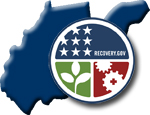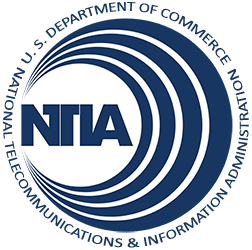Broadband’s ability to expand educational and employment opportunities is especially meaningful for Americans who are deaf or hard of hearing, a community that faces unique challenges in education and that suffers from a rate of unemployment much higher than the national average. Communication Service for the Deaf, Inc. (CSD) intends to expand broadband adoption among people who are deaf and hard of hearing and provide them with online tools to more fully participate in the digital economy. The project proposes to employ a combination of discounted broadband service and specialized computers, technology training from an online state-of-the art support center customized to the community’s needs, public access to videophones at anchor institutions from coast to coast, and a nationwide outreach initiative. Thousands will gain online access to all the Internet has to offer, including sign language interpreters, captioned video services, and other content and functionalities designed especially to advance their educational, employment, and healthcare interests.
West Virginia

| Grantee | Total Award | Type |
|---|---|---|
| Communication Service for the Deaf, Inc. | $14,988,657 | Sustainable Adoption |
| Executive Office of the State of West Virginia | $126,323,296 | Infrastructure |
| Future Generations Graduate School | $4,461,874 | Sustainable Adoption |
| Hardy Telecommunications, Inc. | $3,201,760 | Infrastructure |
| University Corporation for Advanced Internet Development | $62,540,162 | Infrastructure |
| West Virginia Geological and Economic Survey | $4,749,181 | Broadband Data & Development |
| WorkForce West Virginia | $1,901,600 | Public Computer Centers |
The West Virginia Statewide Broadband Infrastructure Project plans to bring high-speed Internet access to this vastly underserved region by expanding the state’s existing microwave public safety network and adding about 2,400 miles of fiber. The expanded statewide network expects to directly connect more than 1,000 anchor institutions, including public safety agencies, public libraries, schools, government offices, and other critical community facilities at speeds of up to 45 Mbps. As a result of this project, every K–12 school in the state will have a high-speed Internet connection. In addition, access to healthcare, distance learning opportunities, and broadband and video applications for emergency first responders will be greatly expanded. The project intends to spur affordable broadband service impacting more than 700,000 households, 110,000 businesses, and 1,500 anchor institutions, by allowing local Internet service providers to connect to the project’s open network.
The Equipping West Virginia’s Fire and Rescue Squads project proposes a community-based approach to stimulate broadband adoption among, and extend computer access and training to low-income and predominantly rural communities across West Virginia. The project expects 60 volunteer fire and emergency rescue stations to participate in the program. Twenty-four squads in 12 counties already have committed to participate in the first year. This project plans to train more than 37,000 people and expects to increase broadband subscribership by more than 12,700 households and businesses during the life of the project. The project also features a broadband awareness campaign that will include peer-to-peer outreach, newspaper and radio advertisements, signage to promote services, social networking, and a support Web site. The project includes two contractors designated as Socially and Economically Disadvantaged Businesses (SDBs), additional small businesses not designated as SDBs, and proposes an “e-commerce academy” to assist small businesses.
The Hardy AnchorRing project proposes to bring high-capacity broadband services to Hardy County, West Virginia, a sparsely populated region of the state with difficult terrain. The project intends to build a 117-mile aerial and underground fiber-optic network, and directly connect an estimated 35 anchor community institutions, such as public safety agencies, government offices, healthcare facilities, schools, and a college, with further connections likely in the future.
As part of a longstanding project to connect essential community anchor institutions across the country, and facilitate closer collaboration and long-term benefits for education, research, healthcare, public safety, and government services, the University Corporation for Advanced Internet Development (UCAID) proposes a comprehensive 50-state network benefitting approximately 121,000 community anchors. The project proposes a large-scale, public-private partnership to interconnect more than 30 existing research and education networks, creating a dedicated 100-200 Gbps nationwide fiber backbone with 3.2 terabits per second (TBps) total capacity that would enable advanced networking features such as IPv6 and video multicasting. The project plans to connect community anchors across all disciplines into virtual communities with shared goals and objectives, including colleges, universities, libraries, major veterans and other health care facilities, and public safety entities, with additional benefits to tribes, vulnerable populations, and government entities.
Project Components
Technical Assistance:
In partnership with the Appalachian Transportation Institute, the West Virginia GIS Technical Center, and the Regional Planning Councils, the West Virginia Geological and Economic Survey proposes to undertake community-level research to assess and investigate areas with low broadband adoption rates and then develop a statewide plan to improve broadband adoption. These organizations will also provide direct technical assistance to the regional planning teams that are proposed below, as well as to individual municipalities that may, for example, require a cost modeling assessment in order to apply for a grant or loan.
Local Regional Technology Planning Teams:
This funding will support local planning groups in each of the 11 West Virginia planning and development regions. Each planning and development region currenlty hosts a regional council that will work with stakeholders to develop a broadband awareness and adoption plan. As part of this work, each regional council will administer and analyze a survey designed to assess the opportunities for broadband-based economic development.
Data Collection, Integration, and Validation:
This project was originally funded for broadband planning activities and two years of data collection. In September of 2010, this project was amended to extend data collection activities for an additional three years and to identify and implement best practices.
The One-Stop Public Computer Center Modernization project plans to improve access to job information, career counseling, and skills training by upgrading and expanding 20 WorkForce West Virginia One-Stop career centers throughout the state. This project intends to replace all of the existing 165 computer workstations at the centers, add 80 new workstations, and enable each center to remain open an average of six additional hours per week. The centers upgraded through this project will provide high speed Internet access and critical job training services to unemployed, low-income, and other residents throughout the state. The improved centers are expected to attract almost 2,300 additional users per week, nearly double their current traffic, through a marketing and direct mail campaign aimed at local residents, especially the unemployed, veterans, seniors, and low-income individuals.
